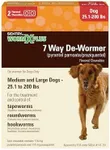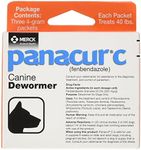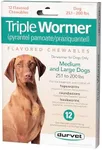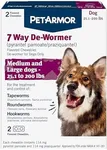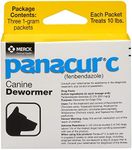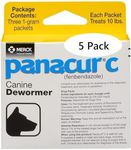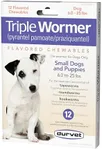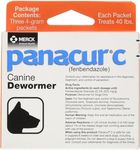Buying Guide for the Best Dewormers For Hookworms In Dogs
Choosing the right dewormer for hookworms in dogs is crucial for ensuring your pet's health and well-being. Hookworms are intestinal parasites that can cause serious health issues in dogs, including anemia and weight loss. When selecting a dewormer, it's important to consider several key specifications to ensure you pick the best product for your dog's needs. Understanding these specifications will help you make an informed decision and effectively treat your dog's hookworm infection.Active IngredientThe active ingredient in a dewormer is the component that kills the hookworms. Common active ingredients include pyrantel pamoate, fenbendazole, and milbemycin oxime. Each works differently and may have varying effectiveness against hookworms. Pyrantel pamoate is often used for its broad-spectrum activity and safety profile, while fenbendazole is known for its effectiveness against multiple types of parasites. Milbemycin oxime is another option that can be effective but may be used in combination with other treatments. Choose an active ingredient based on your dog's health, any other parasites present, and your veterinarian's recommendation.
FormulationDewormers come in various formulations, including tablets, chewables, liquids, and powders. Tablets and chewables are convenient and easy to administer, especially if your dog is cooperative with taking medication. Liquids can be mixed with food or given directly, which might be easier for dogs that resist pills. Powders can be sprinkled on food but may be less precise in dosing. Consider your dog's preferences and ease of administration when choosing a formulation.
DosageThe dosage of a dewormer is critical to its effectiveness and safety. Dosage is typically determined by your dog's weight and the severity of the infection. It's important to follow the manufacturer's instructions and your veterinarian's guidance to ensure the correct dosage. Underdosing can lead to ineffective treatment, while overdosing can cause adverse effects. Make sure to weigh your dog accurately and consult with your vet to determine the proper dosage.
Spectrum of ActivitySome dewormers are designed to target multiple types of parasites, while others are specific to hookworms. A broad-spectrum dewormer can be beneficial if your dog is at risk for or already infected with multiple types of worms, such as roundworms or tapeworms. However, if hookworms are the only concern, a product specifically targeting hookworms may be more effective. Assess your dog's risk factors and any existing infections to choose the appropriate spectrum of activity.
Safety and Side EffectsSafety is a paramount concern when choosing a dewormer. Some dewormers may have side effects such as vomiting, diarrhea, or lethargy. It's important to review the safety profile of the dewormer and consider any pre-existing health conditions your dog may have. Consult with your veterinarian to understand the potential side effects and ensure the chosen dewormer is safe for your dog. Monitoring your dog after administration is also crucial to catch any adverse reactions early.
Frequency of AdministrationThe frequency of administration can vary depending on the dewormer and the severity of the hookworm infection. Some dewormers require a single dose, while others may need to be given over several days or weeks. Consider your ability to adhere to the dosing schedule and your dog's tolerance for repeated treatments. A single-dose treatment may be more convenient, but a multi-dose regimen might be necessary for severe infections. Follow your veterinarian's advice on the appropriate frequency for your dog's condition.


